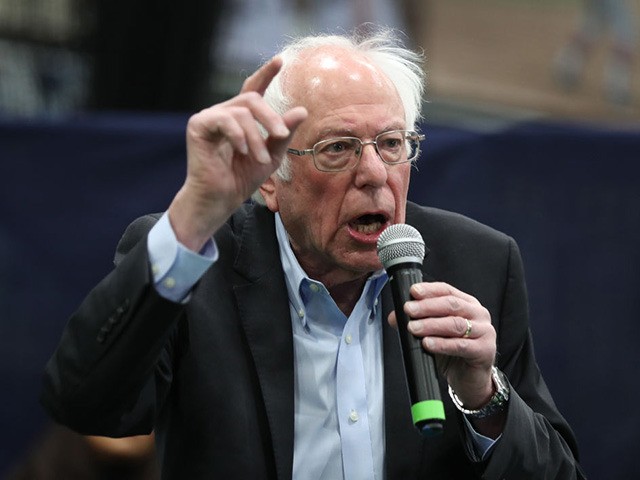The presidential campaign of Sen. Bernie Sanders (I-VT) called for a partial recanvass of results in Iowa on Sunday hours after the Iowa Democratic Party announced that former Mayor Pete Buttigieg (D) won 14 delegates to the Democratic National Convention, finishing two delegates ahead of Sanders, who was awarded 12 delegates.
Sanders beat Buttigieg by more than 6,000 votes in the first alignment preferences of the 176,000 registered Democrats who attended last Monday’s Iowa Democrat caucuses.
Late Sunday, the Sanders campaign called for a partial recanvass of Iowa results, as the Hill reported:
Sen. Bernie Sanders (I-Vt.) will ask the Iowa Democratic Party to recanvass some precincts in the Iowa caucuses after reporters and others on Twitter pointed out irregularities in the final delegate calculations.
A Sanders campaign official confirmed to The Hill in an email that the campaign will seek a “partial” recanvass, but it wasn’t immediately clear how many precincts would be contested.
The announcement comes shortly after the Iowa Democratic Party released updated totals for the state’s caucuses held last week following days of uncertainty over the contest’s winner.
Iowa has a complicated method for allocating delegates to the Democratic National Convention through its caucus process.
A little more than 176,000 paper ballots were cast for preferred presidential candidates by attendees at the 1,765 caucus events in a “first alignment.” After candidates who did not achieve support from 15 percent of those attending any given caucus were eliminated, a “second alignment” vote was taken. Based on those second alignment votes, a little more than 11,000 county convention delegates were selected, who in turn were narrowed down to about 2,151 state delegate equivalents, who in turn were narrowed down to 41 delegates to the Democratic National Convention.
At each step of the process managed by the Iowa Democratic Party, Sanders’ support was reduced.
Despite promises made by the Iowa Democratic Party prior to the 2020 caucuses to publicly report all the results for first alignment and second alignment votes, the official results page does not show those results, but they are available at several news outlets, including CNN.
Sanders won the first alignment popular vote by 3.4 percent over Buttigieg. He won the second alignment vote by 1.4 percent. He trailed Buttigieg in the state delegate equivalent allocation process by 0.1 percent (one-tenth of one percent), and he trailed Buttigieg in the national delegate allocation process by five percent.
Sanders received 43,699 first alignment votes (24.7 percent of those cast), compared to Buttigieg, who finished in second place with 37,596 first alignment votes (21.2 percent).
Sanders received 45,842 second alignment votes (26.5 percent) to Buttigieg’s 43,724 (25.1 percent).
State delegate equivalents were allocated as follows: 564.3 for Buttigieg, 561.5 for Sanders, 388.48 for Sen. Elizabeth Warren (D-MA), 339.6 for former Vice President Joe Biden (D), 263.8 for Sen. Amy Klobuchar (D-MN), and the remaining 30 scattered among Andrew Yang (D), Tom Steyer (D), and “uncommitted.”
The final delegate count released by the Iowa Democratic Party was 14 for Buttigieg (34 percent of delegates), 12 for Sanders (29 percent of delegates), eight for Warren, six for Biden, and one for Klobuchar. That represents a total of 41 delegates from Iowa out of the 4,750 delegates eligible to vote for the party’s nominee at the Democratic National Convention in Milwaukee, Wisconsin, this July.
Earlier, the Iowa Democratic Party said it would recanvass results if requested by the campaigns of any of the candidates, but it did not immediately respond to the Sanders campaign request for a partial recanvass.

COMMENTS
Please let us know if you're having issues with commenting.